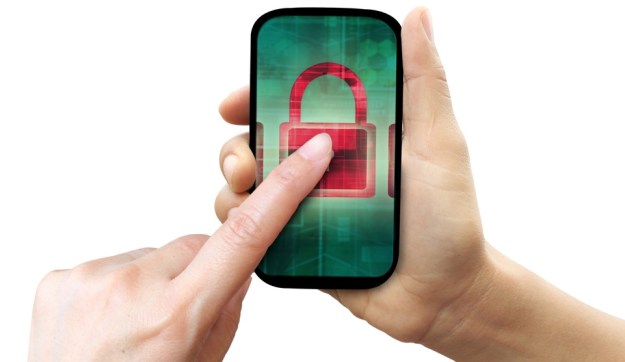
The good folks on Capitol Hill cannot muster the wherewithal to steer us away from fiscal slaughter, but they sure as hell can make unlocking your smartphone legal again.
Brenden Sasso at The Hill reports that a battalion of U.S. lawmakers has thrown itself on the public relations grenade that is the cell phone unlocking ban. Sen. Ron Wyden (D-OR) – a man who understands the politics of the Web better than virtually anyone in Congress – announced the first bill to legalize cell phone unlocking early this week. Two more bills are on their way – one from Sen. Amy Klobuchar (D-MN) and another from Rep. Jason Chaffetz (R-UT).
Reps. Darrell Issa (R-CA) and Jared Polis (D-CO) – two other Internet superstars – each pledged support for legislation that legalizes unlocking (but not specific legislation). So has Senate Patrick Leahy (D-VT), Chairman of the Judiciary Committee, which oversees copyright law and will likely be the first to take a crack at one of these bills.
Unlocking alters a cell phone’s (copyrighted) software to allow it to work on multiple wireless carriers. It lets us jump from one wireless service provider to another with the same device (provided the carriers run the same type of network). And unlocking is particularly useful if you travel overseas, where buying a pre-paid SIM card loaded with a local number is commonplace.
But this fight is not really about unlocking; it’s about what it means to own something – even if that something includes a copyrighted piece of debilitating software.
The Obama administration kicked off Washington’s unlocking lovefest on Monday with a response to a successful “We the People” petition that called legalized unlocking mere “common sense” (provided you don’t have a wireless contract, or any “other obligations”). Federal Communications Commission Chairman Julius Genachowski also called legal unlocking “common sense.” Both said Congress should pass legislation to kill the unlocking ban.
Put another way, the current situation is insane. First time offenders potentially face a $500,000 fine and five years in prison – we’re talking ruined lives here. Repeat offenders might as well just smother themselves – the penalties are literally doubled. Were unlocking to remain illegal, the courts would eventually decide how to punish offenders. If all goes as I suspect it will, unlocking will be legal within a couple of months, at most.
Why am I so sure Congress will come together on this issue? Because it’s good, easy politics. Unlocking was technically legal for the past six years. So bringing back the previous status quo – or something close to it – takes very little political capital, and makes a bunch of voters happy. There’s really no way for supporters of this bill to lose, from a political standpoint. Which is why we’re seeing this sudden outpouring of support from federal lawmakers.
If Congress doesn’t legalize unlocking, well, then they’re even more foolish and dysfunctional than I think.
The unlock effort is bolstered by a grassroots campaign launched today by 27-year-old entrepreneur Sina Khanifar – the same guy who created the pro-unlocking petition that received more than 114,000 signatures and elicited the invigorating response from the White House – that seeks to alter section 1201 of the Digital Millennium Copyright Act (DMCA). As written, S1201 prohibits the circumvention of all “digital locks” (among other things) – and outlines the maximum penalties listed above.
“[Amending the DMCA] should be something that can get support from both sides of the aisle,” said Khanifar in a statement. “Republicans should be happy to see less regulation, and Democrats should be happy about a big win for consumer rights. I’m excited to see where things go from here.”
In addition to wanting to make unlocking legal again, the campaign, housed at FixTheDMCA.org, seeks to permanently legalize jailbreaking of phones and tablets, enable the legal creation of screen-reading software for the blind, and finally make it legal for people to rip their personal DVD collection for use on other electronic devices, like PCs and tablets.
Among these, only jailbreaking of cell phones – but not tablets – is currently exempted under the DMCA, thanks to the Librarian of Congress, who makes new rules every three years for what otherwise illegal activities are exempted from the DMCA. It was the Librarian, James Hadley Billington, who got us into the whole unlocking mess, after ruling in October that cell phone unlocking would no longer have exemption status.
While it may seem as though Congress and the Fix the DMCA crew – which includes the Electronic Frontier Foundation, Reddit, Mozilla Foundation, YCombinator, iFixit, and others – are working toward the same goal, that’s not exactly true. As Alex Fitzpatrick at Mashable reports, Sen. Wyden’s bill, the “Wireless Device Independence Act of 2013,” only makes it legal to unlock devices that are no longer under contract from a wireless carrier, among other stipulations. Fix the DMCA wants to make it legal to circumvent digital locks, period.
At the moment, cell phone owners may only unlock their devices with permission from their wireless carrier. Most carriers allow temporary unlocking for people who want to use their device during international travel, provided the user has an account in good standing. But still, you have to ask before monkeying with your phone’s digital lock.
On principle, I am with Fix the DMCA on this – consumers should be able to do whatever they want to the products they buy. Making this the law of the land is the fix Congress should provide. But it won’t; it will take the effortless route by passing legislation that keeps wireless providers from flipping out, while still making it legal to unlock your phone once your contract has expired. Is that a win for consumers? You tell me.
Updated with additional information.
(Image via Adchariyaphoto/Shutterstock)

